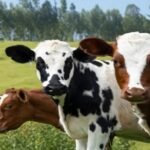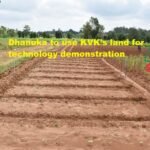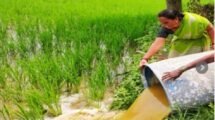Class 10 dropout is now Organic farming adviser to Agri universities & ICAR’s national curriculum committee committee
Believe it or not, a Class 10 dropout from Rajasthan will be working with scientists and academics to develop organic farming curricula for agricultural institutes in India. Hukumchand Patidar, a farmer from Manpura village in Rajasthan’s Jhalawar district, is the man on a mission.
He has been tasked with developing organic farming curricula for India’s agricultural universities. Surprisingly, he seems least concerned about his lack of a degree. ‘Our ancient scriptures and artifacts taught me organic farming knowledge, which I will share with my panel colleagues.’ He stated.
Also Read | Integrated Organic Farming System model of IISR bag national award
‘The module I’m developing, natural and cow dung-related agriculture will be taught in schools, colleges, and universities.’ Patidar explained.
He promotes the use of ‘panchgavya,’ or the five components generated from cows, to enrich the soil and make crops healthier, and has served as an organic farming adviser to Rajasthan’s four agricultural universities.
Patidar decided to venture into organic farming in 2005, despite opposition from his family and friends who were concerned about potential losses.
Unaffected by the lack of support, he began organic farming on a 25-hectare plot of land. Patidar now earns millions while also exporting products to Germany, Japan, and Switzerland. In fact, his organic product earns a 40% greater price than crops cultivated using traditional farming methods.
Patidar was therefore awarded the Padma Shri in 2018 for his efforts to promote organic farming at his farm, Swami Vivekananda Jaivik Krishi Anusandhan Kendra.
He opted to go into organic farming after realizing that ‘conventional farming was proving unsafe, with visible negative impacts on people’s and the environment’s health.’
‘I learned that conventional agriculture, which uses pesticides, was causing a decline in land productivity, and that the soil was being destroyed and crops were becoming poisoned.’ He stated.
As a result, he began organic farming and assisted in transforming his native hamlet of Manpura into a completely chemical-free farm area.
Based on his accomplishments, he has been appointed to the Indian Council for Agriculture Research‘s national curriculum committee because of his experience in cultivating organic oranges, legumes, onion, coriander, and fennel, the majority of which is sold to Europe.
Also Read | Indian agri industry lack of competitiveness but prepared for major growth-CEA
‘After implementing many methods to improve the carbon cycle on my property, I have seen a beneficial impact as the land conditions have become more favorable to the growth of microbes and insects that make the soil fruitful.’ Patidar explained.
He prefers nature to technology, and he says on the Facebook page of Swami Vivekanand Jaivik Krishi Anusandhan Kendra Manpura, ‘Our ancestors were far ahead of us, scientifically.’















Add Comment